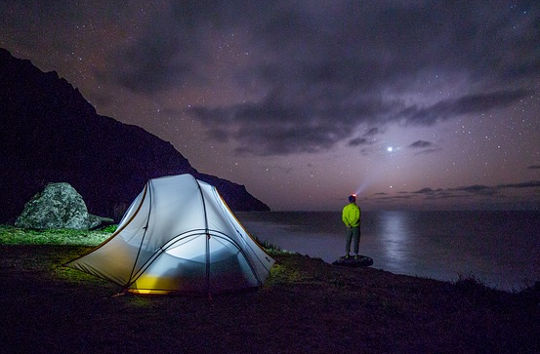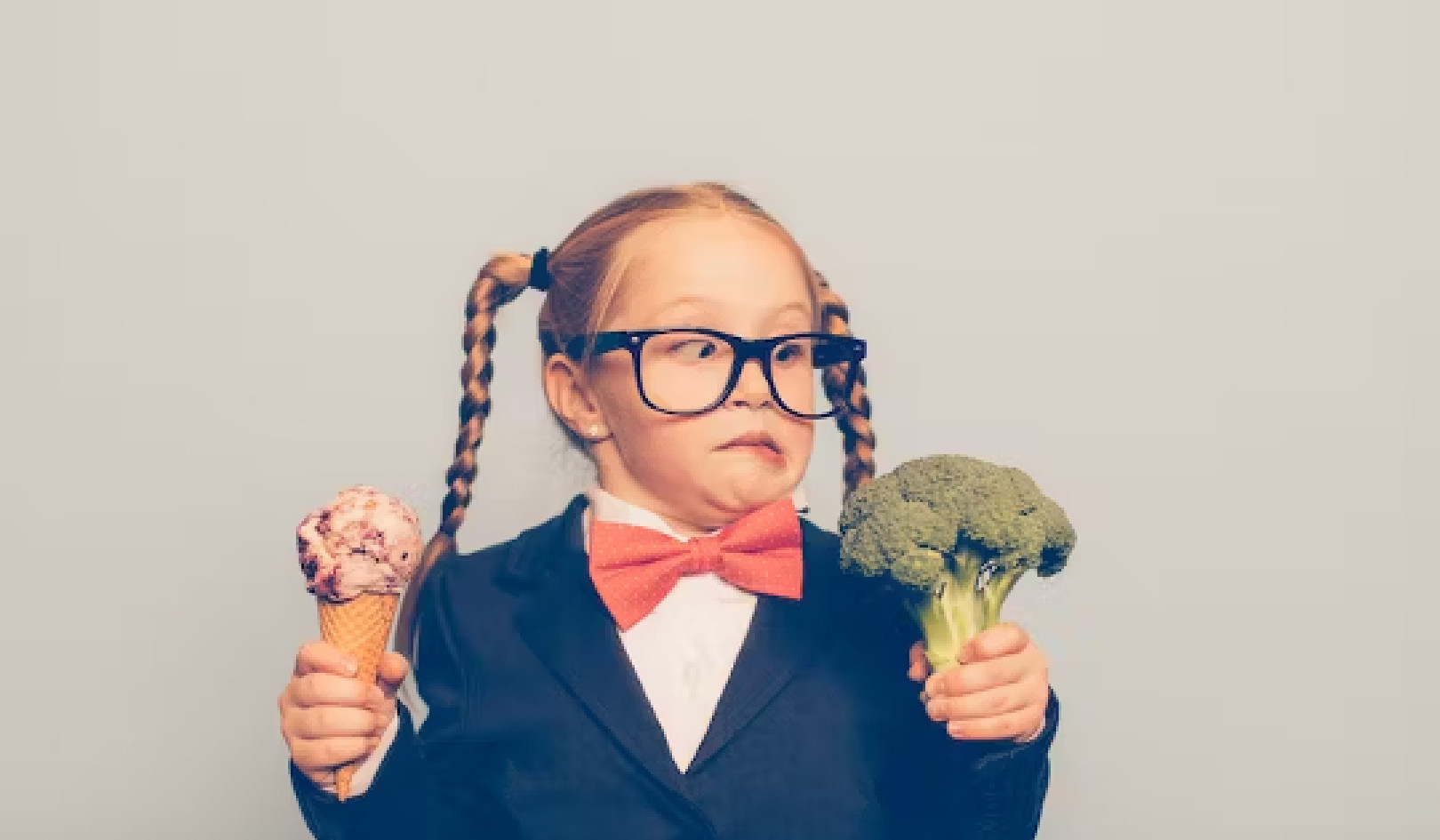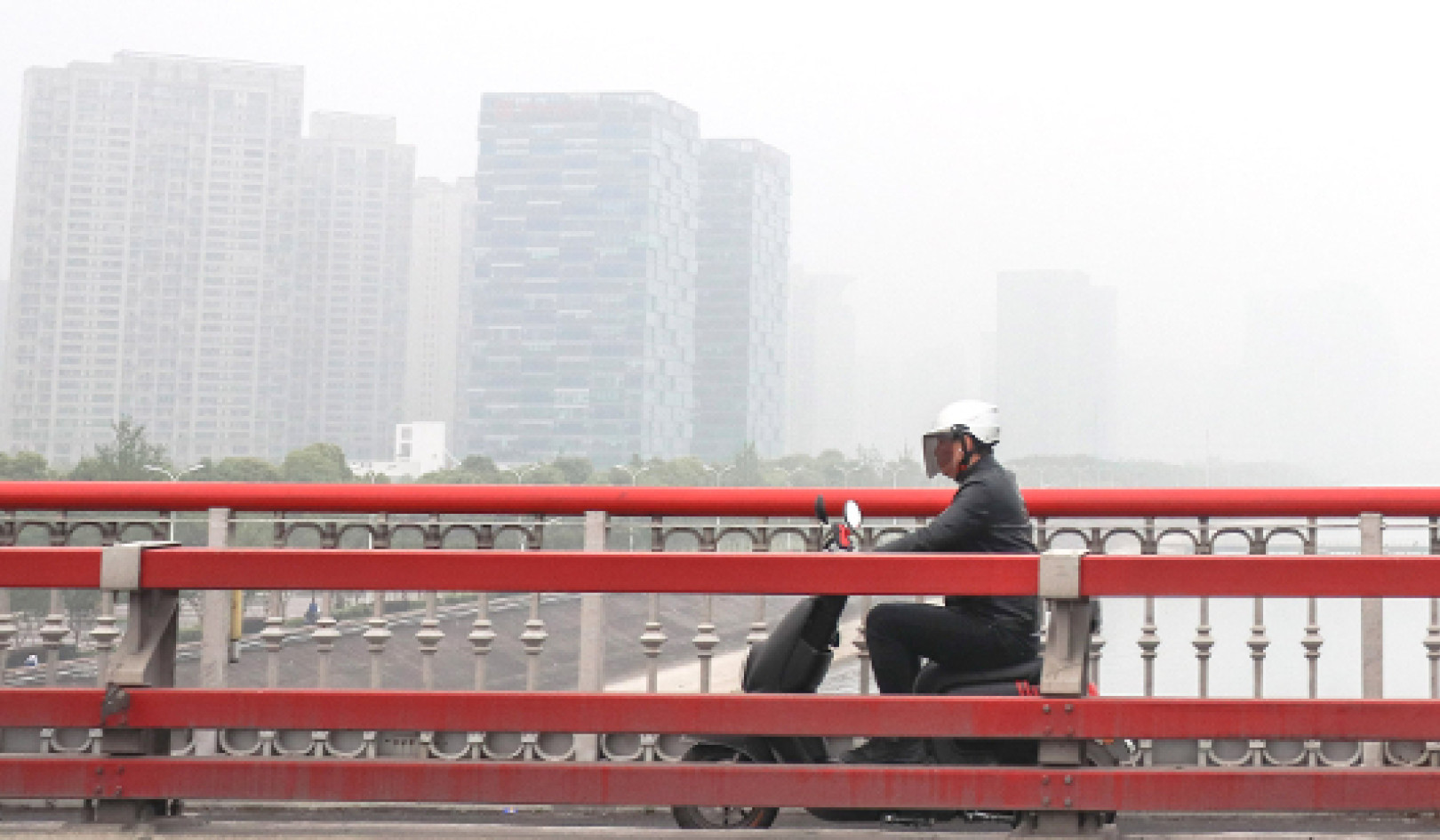
I am no anthropologist, but I do know that human beings have been around for a long, long time hunting mast odons and dancing around campfires and occasionally going through extreme mental states. Throughout most of human history, there was no such thing as a psychiatrist or a refill of Ativan—and humans developed a thousand different ways of working with mental and emotional distress, many of which are just as effective today as they were in 612 BC.
Things like meditation, acupuncture, herbal rem edies, and nature therapy have a long history of helping people heal their minds and bodies—and they are often gentler, safer, and more effective in the long term than “conventional” treatments for mental illness, when used wisely and correctly, with the help of experienced teachers. There’s a whole world of healing out there.
Herbal Remedies
Some people find it fun or interesting to supplement their pharmaceutical medications with herbal remedies sold today at your local alternative health store. Herbs work subtly. They’re not tranquilizers. Don’t drink a cup of chamomile tea and expect the same effects as Klonopin. Chamomile is not Klonopin. Marijuana might be Klono pin. Klonopin might be Klonopin. But chamomile tea is chamomile tea. Appreciate herbal remedies for what they are: mild, gentle. If their effects are more of the pla cebo variety, that’s cool. Evidence of the effectiveness of all of the following herbs is mondo inconclusivo, so mainly consider them a tool for tricking yourself into feeling calmer or sleepier or whatever.
Valerian might be the world’s oldest insomnia rem edy: the first recorded use of valerian for insomnia was in the second century.
Kava kava is a beverage made of dried kava root and drunk ceremonially in Pacific islands like Samoa and Hawai’i. It’s the only one of the herbs discussed here that has actually been shown in research to have a more significant effect than a placebo—namely, mild seda tion and better sleep. You can get it in powder form. It doesn’t exactly taste good, but it makes your lips feel numb, which is kind of cool.
Common skullcap is thought to be a mild sedative.
Damiana is also thought to have sedative properties.
St. John’s wort is pretty well hyped for depression by now. You can buy commercial preparations of it in most grocery stores. It doesn’t interact well with MAOI inhibi tors, so don’t mix your meds. I’ve read that, like other antidepressants, it can induce mania or hypomania in people who have a predisposi tion towards those states. So definitely consult with your doctor before worting it up.
Marijuana for, um, medicinal purposes is now legal in twenty-five states. For many people with bipolar disorder, smoking a joint really is “good medicine”: it can lighten depression, help you sleep, improve your appetite, and calm you down if you’re edgy and hypomanic. Plus, weed has the bonus of being the one “med” that makes reg gae music sound better (when’s the last time lithium did that?). Like any other medicine, marijuana has different effects on different people: some people find that using it makes them more depressed, or aggravates their insom nia. And while there has been no proven link between bong-hits and bipolar, some doctors think that smoking weed makes it harder to deal with symptoms (other doc tors think it’s great!).
Wilderness Time
I’ve heard that when put in survival situations, even suicidal people will fight for their lives. Some prisons dump their inmates into isolated wilderness for rehabilitation; summer camps for troubled kids and teens are also fond of this technique.
Why is solitude in the wilderness so effective at sparking deep insights and life reckonings? My bet’s on the fact that it pares you down to the abili ties you have in your own body and your own mind. You don’t have other people around to help you out or piss you off. You don’t have machines or tools. You realize the extent to which your life is in your own hands—or out of them, if the weather is anything to go by.
If you have no purpose in life, going into the wilder ness gives you an instant purpose: survival. Your only job, from day to day, is to take care of your basic needs for food, water, shelter, and heat, and your only company is yourself.
You have plenty of time and opportunity to observe the changing nature of nature itself. You witness a sunrise and sunset every morning and evening. You see clouds forming, dropping rain, and breaking into blue sky.
Your body feels keenly how the day starts out cool, warms up gradually, and cools down again as it turns to evening—something you might never feel if you spend all your time in a climate-controlled environment. If you’re near the ocean, you witness the tide going in and out each day. The moon changes a little bit each night. And the plants and animals around you change visibly too. Even over the course of a single week, you can watch a seedling sprout out of its pod, a flower bloom, berries ripen, the progression of a bird’s nest or beaver’s dam being built.
With all this change going on around you, the wheels of your mind slow down and stop pushing forward an endless stream of concerns and mental chatter, and you’re eventually forced to surrender to the fact that the world keeps on going no matter what you do.
Some people think that cities contribute to mental illness, because they’re environments of intense, non stop stimulation that can also be completely impersonal. The theory goes that the structure of a city—the primacy of motor vehicles over people, the deluge of words and images, and the endless passage of people with whom we never make eye contact or acknowledge in any way— is pathological.
There’s a collective fantasy of fame and urgency: you have to be someone, and you have to eat, drink, buy, or do something stimulating at all times. You start to feel like what you do with your life is really important, when at the same time, nobody in the endless stream of strangers knows you or cares. You feel pressure to go to a show, to meet people, to entertain yourself, to be happy.
Who’s standing over your shoulder keeping tabs on how entertained and happy you are? This is the collective delusion of a city: that someone gives a hoot about all the rad, awesome parties you go to.
When I get depressed, I weep and feel intensely guilty for not being famous. I feel, insanely, that my not being famous is letting down a slew of imaginary onlookers who are very, very disappointed at my lack of progress. Fame—not marriage, money, or happiness—is the ulti mate endgame. On the other side of the coin, when I’m hypomanic, I feel very optimistic that my (trivial) day-to-day activities and projects have a famous flavor to them.
Going into the wilderness dissolves this illusory fame game and reveals it for what it is: completely arbitrary. A lightning storm doesn’t care how many hits a day your website gets. A prowling grizzly bear doesn’t care how many people recognize you at the bar.
Nature’s failure to recognize you and tailor itself to your greatness breaks down your narcissism pretty fast. You realize the imagi nary tally you carry around in your head has no inher ent value and is completely disposable, pure ether. It’s disconcerting, but ultimately the most comforting balm I know is the knowledge that I am no one. Just another green shoot rising and getting eaten by a deer. The uni verse swirls on.
Animal Therapy
Full disclosure: I never had pets growing up, and when ever I heard people talking about how their beloved Ralph or Skooter helped them get through the day, I secretly thought it was crap. But a few years ago I took home a pair of abandoned kittens I found in the park, and having finally experienced what it’s like to live with warm, fuzzy animals, I’ve changed my Scrooge-like opin ions.
Animals are great, especially if you’re prone to the highs and lows of a mood disorder. Having a friendly crea ture around helps dispel loneliness, provides structure and responsibility, and gives you a guaranteed playmate or exercise buddy. Some people with bipolar disorder even have service dogs (protected by the Americans with Disabilities Act!) who bark when it’s time for meds and nuzzle them when they’re having a panic attack.
If you can’t own a pet, try volunteering at an animal shelter or making friends with a neighbor’s dog, cat, horse, pig, or llama. The love they give is definitely worth the slobber and hairballs.
Gardening
The earth is an antidepressant. Working in a garden or rehabilitating a distressed piece of earth has dramatic effects on mood. Gardening is gently stimulating—the colors, the smells, the textures of plants and soils, the ever-changing patterns of living things. It can give you a sense of purpose (pull the weeds! give the robins a place to nest!) and feels deeply rewarding.
When you tend a garden or a wild place, you can see the positive differ ence your work makes (try seeing the positive difference your data-entry job makes! not so easy, is it?). And if you’re scientifically inclined, then yes: there is evidence to suggest that certain strains of soil bacteria trigger the release of serotonin. In other words, getting dirt under your fingernails literally makes you happy.
It is only very recently that humans have begun to spend so much of their lives indoors and have so little interaction with natural processes. Most of us aren’t hunt ers or gatherers or even farmers; some of us don’t even have a house plant to water now and then. We have heat ers and air conditioners to render the weather irrelevant, electric lamps to obliterate seasonal changes in light and darkness, and our food comes from “somewhere else.”
On the surface it all seems very comfortable, but perhaps we aren’t as well adapted to this condition as we think: our bodies respond to soil and water and trees by becom ing happier and less stressed, and when’s the last time you could say that about a parking lot?
©2010, 2017 by Hilary Smith. All rights reserved.
Reprinted with permission of the publisher, Conari Press,
an imprint of Red Wheel/Weiser, LLC. www.redwheelweiser.com
Article Source
Welcome to the Jungle: Facing Bipolar Without Freaking Out (Revised Edition)
by Hilary T. Smith
 Going bravely where no other bipolar book has gone before Welcome to the Jungle offers devastatingly on-target, honest?and riotously funny?insights into living with bipolar and answers some of the hardest questions facing people newly diagnosed.
Going bravely where no other bipolar book has gone before Welcome to the Jungle offers devastatingly on-target, honest?and riotously funny?insights into living with bipolar and answers some of the hardest questions facing people newly diagnosed.
Click here for more info and/or to order this book.
About the Author
 Hilary T. Smith’s first novel, Wild Awake, was an IndieNext pick, a Junior Library Guild Selection and a Canadian Children’s Book Center Best Book for Teens. Her second novel, A Sense of the Infinite, was a VOYA magazine Perfect 10 selection, a Book Riot Quarterly Pick, a finalist for the Ontario Library Association White Pine Award and a finalist for the 2016 Oregon Book Award. Her publishing blog, The Intern, was a Writer’s Digest Top 100 Websites for Writers in 2011. Visit her at www.hilarytsmith.com.
Hilary T. Smith’s first novel, Wild Awake, was an IndieNext pick, a Junior Library Guild Selection and a Canadian Children’s Book Center Best Book for Teens. Her second novel, A Sense of the Infinite, was a VOYA magazine Perfect 10 selection, a Book Riot Quarterly Pick, a finalist for the Ontario Library Association White Pine Award and a finalist for the 2016 Oregon Book Award. Her publishing blog, The Intern, was a Writer’s Digest Top 100 Websites for Writers in 2011. Visit her at www.hilarytsmith.com.
Other books by this Author
at

Thanks for visiting InnerSelf.com, where there are 20,000+ life-altering articles promoting "New Attitudes and New Possibilities." All articles are translated into 30+ languages. Subscribe to InnerSelf Magazine, published weekly, and Marie T Russell's Daily Inspiration. InnerSelf Magazine has been published since 1985.

Thanks for visiting InnerSelf.com, where there are 20,000+ life-altering articles promoting "New Attitudes and New Possibilities." All articles are translated into 30+ languages. Subscribe to InnerSelf Magazine, published weekly, and Marie T Russell's Daily Inspiration. InnerSelf Magazine has been published since 1985.























